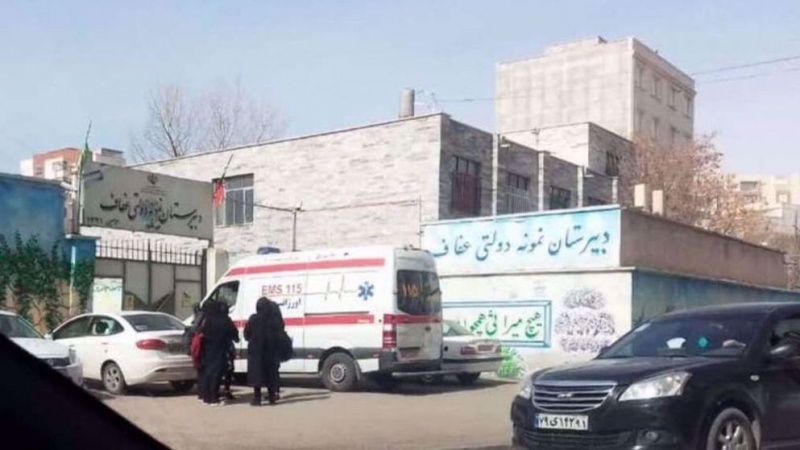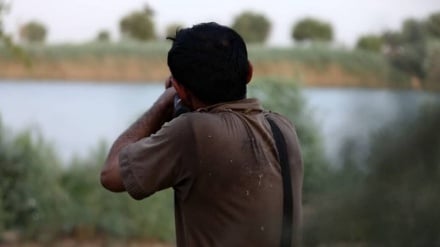Iran mysterious serial poisonings may have psychogenic origin: Experts
-

The photo shows an ambulance outside Efaf high school in the Iranian city of Ardebil, on March 1, 2023.
A new article has raised speculations about the psychogenic origin of the mysterious serial poisonings in Iranian schools, saying reports on the incidents should be viewed with caution.
The article written by American medical sociologist Robert Bartholomew and published Saturday in Psychology Today magazine drew a parallel between the poisonings in Iran and those recorded in Afghanistan and the occupied West Bank in 2009-2016 and 1983, respectively.
Different studies on poisonings in Afghanistan concluded that the affected girls were suffering from “mass psychogenic illness,” the article read, adding that they “were attending schools in defiance of the Taliban, stoking fears of reprisals.”
Nearly all poisoned Afghan girls recovered quickly, and no toxin was ever identified in the air, water, or food, it further said.
The article also cited investigations that found psychological illness as the origin of the poisoning of nearly a thousand Palestinian schoolgirls in the West Bank in March-April 1983.
“In recent history, there have been several documented instances where incidents of apparent state terrorism turned out to be psychogenic in origin,” it continued.
“In all of these cases, young Islamic girls under extraordinary stress … fell ill from a mystery condition that was typically attributed to poison gas after someone drew attention to an unusual odor. What is more likely: that the students have been the target of chemical attacks for which there is no evidence after three-and-a-half months or that they are suffering from psychogenic symptoms generated by stress – a condition that has been documented for millennia and for which the number-one target is young girls undergoing extreme, prolonged stress?”
Since November 2022, some Iranian students have been poisoned in schools. The outbreak started in Qom before expanding to other cities.
Most of the poisoned students have suffered respiratory problems, nausea, fatigue and dizziness, with some of them being hospitalized.
Anti-Iran media have been disseminating rumors and misinformation to fuel concern in society, trying to depict the Islamic Republic as insecure and against women’s rights.
On Friday, Iran’s President Ebrahim Raeisi announced that he had asked the ministers of intelligence and interior to follow up on the poisoning cases.
MG


